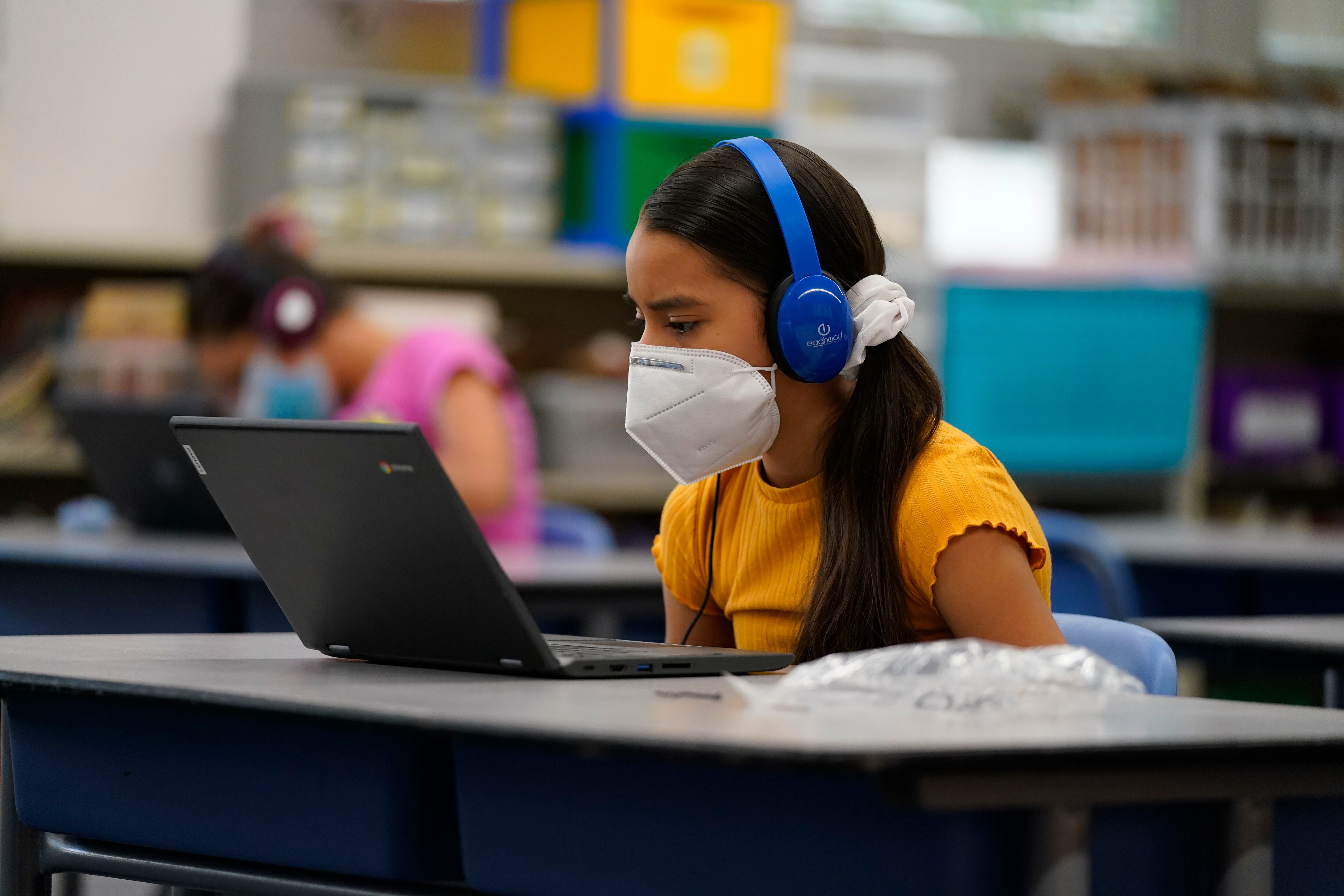A few weeks after Enlace Academy middle schoolers are expected to return to classrooms in person for the first time in more than a year, they will begin taking state standardized tests.
Students will be used to it — even when learning remotely, they have been coming in person for assessments this year.
Those who remain remote can take tests in a small group setting, in the evening, or even on the weekend.
Indiana requires schools to give the state’s standardized test for students in grades three through eight in person this April and May. Indiana is likely to suspend consequences for schools, but dozens of districts still have pushed for the state to cancel ILEARN this year. Indiana education leaders, however, are committed to giving the exams, which are federally required.
Administering the exam during a pandemic will pose new logistical obstacles for schools, such as providing transportation and testing supervision for remote students.
Indiana is in a better position than are many other states. Nearly all schools are offering in-person classes, with 90% operating in person full time, according to the Indiana Department of Education.
But even schools that are open in person may struggle to get students to take tests. Some students will miss the exam because they are out of school due to quarantine or illness. And families who opted for their children to study remotely may feel unsafe sending them for in-person testing.
The federal government typically requires that 95% of students take the state test. A spokeswoman for Indiana Secretary of Education Katie Jenner said the state is seeking a waiver from that requirement.
Enlace has had early success getting students to participate in tests in person, said Kevin Kubacki, executive director for the Neighborhood Charter Network, which runs the school.
The charter school educates 600 students in kindergarten through eighth grade. All students in sixth through eighth grades have been remote since the start of the school year, and about a quarter of elementary school students are currently learning online by choice.
When the school tested English language learners, about 98% took the exam, Kubacki said.
The school offers flexible testing options, such as letting students come in on weekends, to make families safe, he said.
“We pair it with very strong communication to the families around the importance of why we’re doing the assessments,” Kubacki said. “We need to be able to gather data on students to be able to identify what are their needs.”
Holly Lawson, a spokeswoman with the Indiana Department of Education, said the required third-grade reading test, which is currently being administered, has had high completion rates. During the first week, about 80% of students completed the test, above the rate at that time last year, Lawson said.
“Looking ahead, we’re confident we’ll see strong completion rates with other spring assessments as well, including ILEARN,” Lawson said.
Some schools anticipate, however, that even getting students who are enrolled in person to take the test could be a challenge.
Many of those students have missed weeks of school because they had the coronavirus or had to quarantine after being exposed to someone who had it.
That’s a particular worry for Stephanie Hofer, assistant superintendent of Decatur Township schools, a 6,800-student district in Indianapolis. Hofer expects the same quarantining that disrupted the school year could stymie efforts to test all of the district’s students.
“If they’re done quarantining and the assessment window is still open, we still will do our very best to get them in,” Hofer said. “But that is absolutely a concern that we have not had to worry about before.”
For many educators, the burdens of testing are not worth it.
Dozens of Indiana districts, including groups in Marion County and northeast Indiana, have called for the state to suspend standardized tests because of the coronavirus.
Many educators were already frustrated by the ILEARN exams. Students don’t face consequences if they don’t pass. But the test results are supposed to be a large chunk of the formula used to judge the quality of elementary and middle schools on the state’s A-F grading system. They are also used for teacher evaluations.
Gov. Eric Holcomb and lawmakers from both chambers have said they support suspending the consequences tied to low test results, the latest in a series of measures to hold schools harmless from drops in scores over the last five years.
That will assuage the fears of some educators. But others say that in a year when many students missed out on months of in-person schooling, tests will waste valuable time that could be used for instruction.
Because of the pandemic, the test results simply won’t be comparable to other years, said Krista Stockman, a spokeswoman for Fort Wayne schools.
Fort Wayne was one of 39 northeast Indiana school systems that recently sent a letter to Indiana leaders, asking for the state to skip ILEARN this year and instead use results from other assessments schools already give during the year.
“We’re not asking for the state to drop standardized testing,” Stockman said. “We’re not saying that there’s not a place for standardized testing. But this year, we think there’s other ways that you can get pretty good data and not go through ILEARN.”
The impact of the pandemic varies widely across Indiana. In the Bluffton-Harrison school district, a rural community outside Fort Wayne, the 1,600 students have been in classrooms all school year. Just 47 students are currently enrolled remotely, Superintendent Brad Yates said.
But Yates still believes the state should skip ILEARN because time is so precious, he said. Tally up the hours students spend on the math section of ILEARN, for example, and they miss about five days of math instruction.






